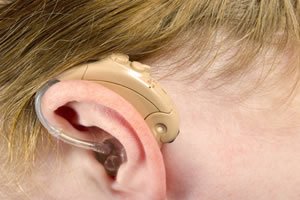 |
| Pest control technicians face some risk of hearing damage from their work. |
| Photo © iStockphoto/Jan Ellen Ball |
Noise and Hearing Loss on the Job
Twenty-eight million Americans have some kind of hearing impairment. More than a third suffered their hearing loss as a result of exposure to loud noises.
Hearing loss is the most common work-related condition.
Loud Noise Risks During Pest Control Service
Pest control is not an occupation you normally associate with loud, potentially damaging noise. But pest control technicians do face some risk of hearing damage in certain situations, such as:
- Using hammer drills in termite control.
- Operating certain types of fogging equipment.
- Doing pest control in food manufacturing plants and other industrial sites.
Key Facts About Noise
- Exposure to loud sounds can cause hearing Loss.
- Noise intensity is measured in decibels (dB). A decibel is a unit that measures the intensity of sound on a scale from zero to 140. Normal breathing measures about 10dB, conversation about 60dB, and shouting directly in someone's ear, 110dB.
- The scale is logarithmic--90dB is 10 times louder than 80dB.
- In general, the higher the decibels (the louder the noise), the quicker the injury.
- Noise duration is also critical. To know if a sound is loud enough to damage your ears, it is important to know both the loudness level and the length of exposure to the sound.
- Sounds louder than 85dB can damage your ears, depending on the length of exposure.
- Drilling concrete with a hammer drill typically produces a noise level between 90 and 95dB. Four to eight hours of this, without some sort of hearing protection, can cause injury.
- The average chain saw at full throttle produces a noise level of about 105dB. This noise level is high enough to cause eventual hearing loss if sustained for more than one hour without hearing protection.
